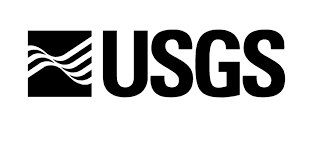Objectives
Prioritize community-led, large-scale projects in Cascadia and the Aleutians
This half day workshop will bring together subduction zone scientists with diverse perspectives on active and exhumed arc magmatic systems to participate in discussions and breakout groups aimed at prioritizing community-led, large-scale projects in Cascadia and the Aleutians. Key outcomes from these breakout discussions would include lists of desired data products, data integration needs, and future grant proposals that the larger community wants to pursue.
Organizers
Madison Myers (Montana State University)
Adam Kent (Oregon State University)
Ben Black (Rutgers)
Kevin Ward (South Dakota School of Mines and Technology)
Agenda
Part 1 - Setting the stage
10:00-10:10 AM | Welcome and Goals of the Workshop - Kevin Ward
10:10-10:25 AM | Overview of Alaska Activities/Priorities - Geoff Abers (MDE) and John Power (USGS)
10:25-10:40 AM | Overview of Cascadia Activities/Priorities - Adam Kent (MDE) and Mike Poland (USGS)
10:40-10:50 AM | Overview of BECG and Community-Based Practices - Madison Myers
10:50-11:00 AM | Example Grants in SZ4D and Future MDE Outlook - Ben Black
Part 2 - Breakout sessions and discussion
please report on desired data products and data integration needs based on subdiscipline for both questions
11:00-11:40 AM | Breakout Session 1: What does community-based science mean to you? What does it look like in Aleutians/Cascadia?
How do we make community-driven science work?
What could be challenges to community driven work?
What is your definition of community?
How could data products and data integration needs facilitate community-based science?
What questions could be answered in this framework that may have been missed earlier?
11:40-12:00 PM | Transition - Coffee Break
12:00-12:40 PM | Breakout Session 2: Next steps for pursuing prioritizations/activities in Aleutians/Cascadia broken down by subdiscipline
What are the big questions that a community-driven set of proposals could answer in this area?
Which of the questions within the implementation plan do you see being excited about solving in a community-driven set of proposals could answer in this area?
What (missing) data or resources would you need to address this question?
How can understanding of your part of the system connect to other regions?
What data or models or instruments or experiments are missing to make connections?
12:45-12:55 PM | Report back and discussion from scribes
12:56-1:00 PM | Wrap-up and post meeting ZOOM announcement

SZ4D mini-workshops are free of charge and open to all. This workshop is co-sponsored by the US Geological Survey.




